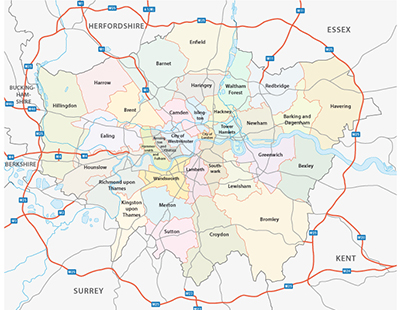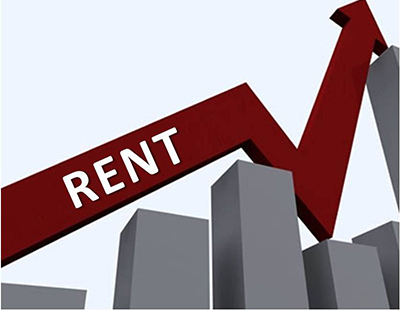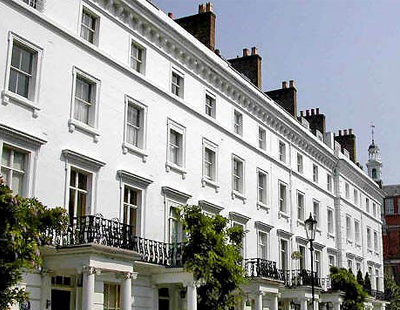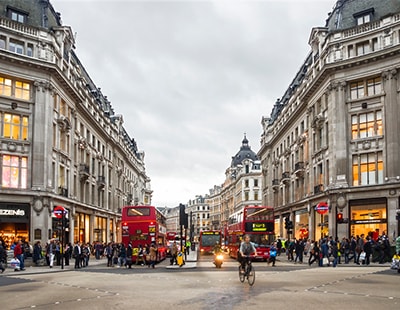Despite rent controls being a vote-catching policy for some local election candidates next week, the reality is that asking rents in 65 per cent of London areas are lower than five years ago.
But data from Rightmove shows that the same can be said in only four per cent of the areas outside of London.
The five-year study by the portal looks at 900,000 rental properties; it found the decline in rents is being driven by Inner London, where asking rents are down by 6.5 per cent now compared with Q1 2016.
In Outer London rents are holding up better; even so, they are only 2.0 per cent higher than five years ago.
The biggest drop in the capital is in Finsbury, where asking rents are 24 per cent down on five years ago from £2,818 per calendar month to £2,147. The number of rental properties in Finsbury on Rightmove is up by 76 per cent compared to a year ago.
The biggest five-year rise in London is in Hammersmith where asking rents are 12 per cent higher than five years ago, although the rental growth occurred between 2016 and 2020 as rents right now are down by 19 per cent in the area compared to this time last year.
The figures spell some good news for people looking to rent a new property in London, as there may now be more areas open to them that before were completely unaffordable.
The biggest decline in cash terms is in Knightsbridge where monthly rents are £1,246 lower than five years ago although they are still a hefty £6,221 pcm.
Outside London there are only seven locations in the study with asking rents lower than five years ago. Three are in Surrey (Woking, Walton-on-Thames and Weybridge), plus the two city centres of Southampton and Birmingham, along with Leamington Spa and Chigwell.
The rental market is seeing record demand and a lack of available stock across all regions outside London, leading to strong rental growth across all regions and monthly asking rents at a record of £982 pcm.
The East Midlands has seen the biggest increase over the past five years of 19.3 per cent, rising from £733 to £875 per calendar month. It has also seen the largest growth over the past year, up by 7.5 per cent.
The strong demand has led to the percentage of available rental stock outside the capital being down by 54 per cent compared to this time in 2019, while in London it is up by 19 per cent.
This has led to the majority of regions seeing properties let to a tenant in the fastest time since Rightmove started recording this data 10 years ago. The South West is the fastest at 14 days, followed by the East Midlands at 17 days.
Rightmove’s Director of Property Data Tim Bannister said: “Our data shows a stark contrast between the rental market in central areas of London and the market across the rest of Great Britain. Agents are telling me that they don’t have enough rental stock to meet the demand from tenants in many areas, while in London there will be some tenants who have a lot more stock to choose from.
“Landlords who five years ago took a longer term view obviously couldn’t foresee the effect that covid would have on rents, and right now they’ll be doing all they can to prevent voids and hope the drop in rents is fleeting. The frenzied buying and selling market is likely to be exacerbating the problem as well, as some sellers are moving into rental accommodation until they find the home they want to buy, adding further demand to already diminishing rental stock levels.”













%20-%20IMAGE%20Client%20Accounting%20%E2%80%93%20what%20are%20your%20options.jpg)
.png)


%20(002).png)

%20(002).jpg)










Join the conversation
Jump to latest comment and add your reply
If it wasn’t for the political interference I would have bought more for sure. I love the way the blame is always shoved onto our sector by politicians. Whatever sectors they interfere in always end up a train wreck.
Entirely agree. Bit like the Home Information Pack. The legal profession ignored them and I could see that they were a complete waste of space. Whatever happened to them was part of the train wreck you mention. So what's next AH?
Well RAO. Although I never thought I would I think it’s time to slim things down. With much regret after 27 years.
Now there's a surprise.
As well, it is in my view that rent control is a complete contradiction to a free market society. It is either that or government control.
There cannot be a system that is applied to just one sector!!!!!!
If rent control is introduced then the same should be applied to cars, food, doctors, clothes, houses that are purchased, petrol, hospitals, electronics, travel, ........... Where does it stop and why?
Either one or the other.
So which is it to be?
Absolute rubbish.
I think we have a government who are utterly blinkered and ill advised and clearly have forgot that the Private Rented Sector operates in a capitalist market and if it didn't exist there would be insufficient social housing to make up the shortage of supply. Everything the government does in respect of the PRS is ill thought out and and wrongly directed at fixing the problems that clearly exist. Rent controls, abolition of S.21 notices, negative taxation measures etc will never encourage investors to become or remain as landlords. which will only lead to to a shortage of rental stock, ultimately increasing rents. In my opinion it would be a very simple fix to create the option of a longer term AST of 3 or 5 years at market rents fixed for the term in addition to the existing 6 or 12 month terms that we are used to and by offering a longer term tenancy landlords would be incentivised through the taxation system. That would provide stability for tenants with out unpopular legislation and I believe it would be an attractive option for both professional landlords and tenants alike.
Please login to comment